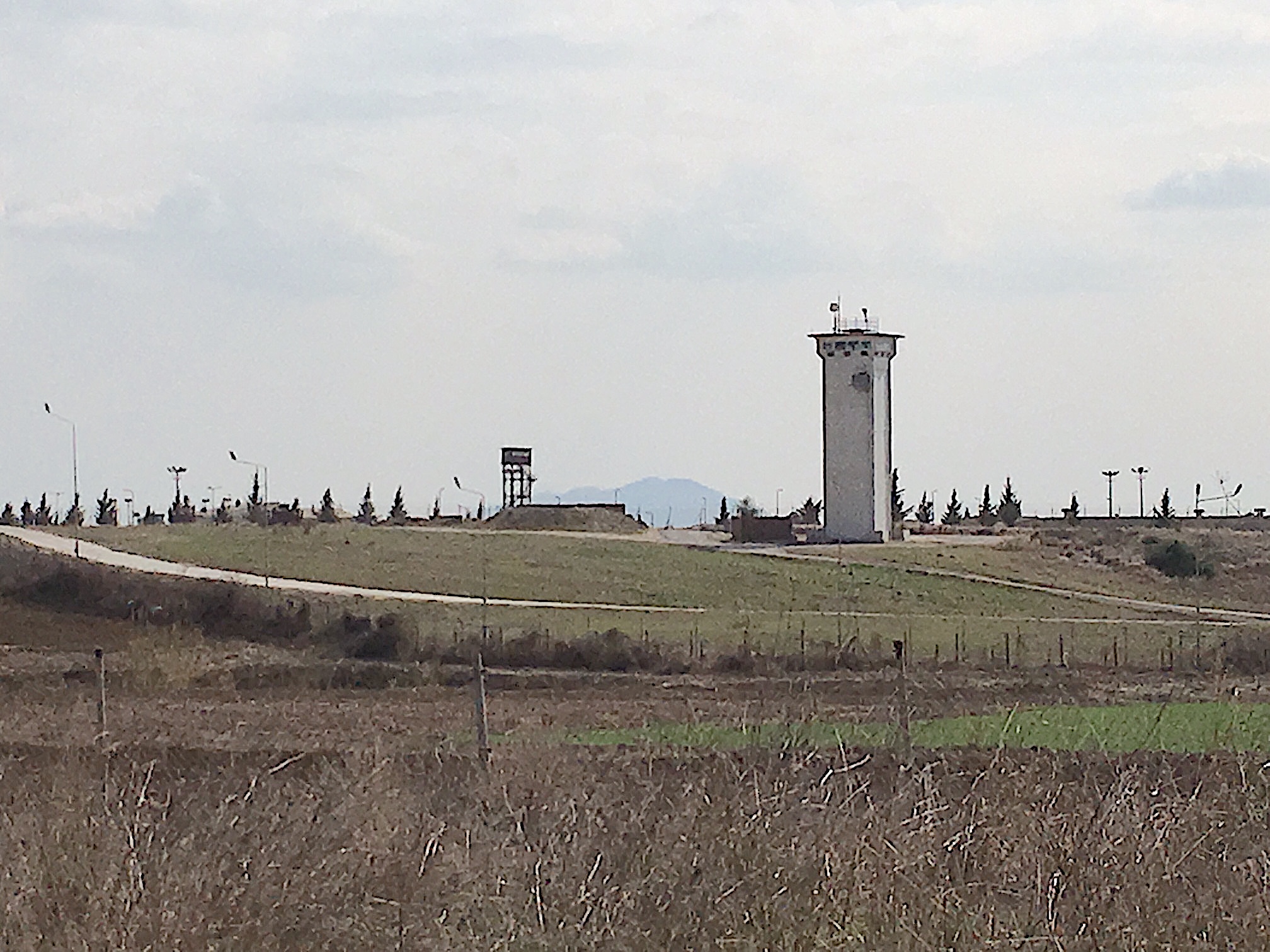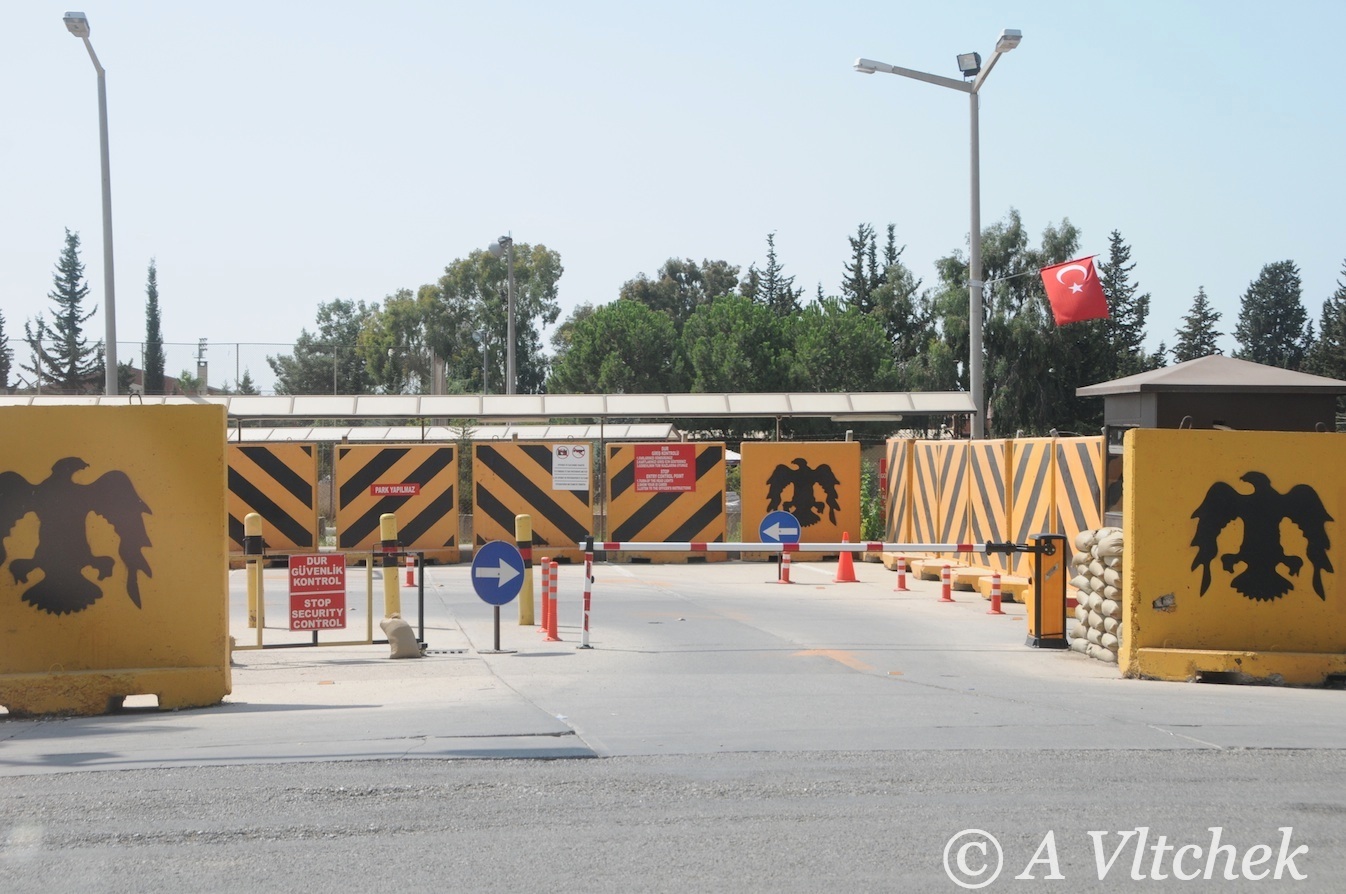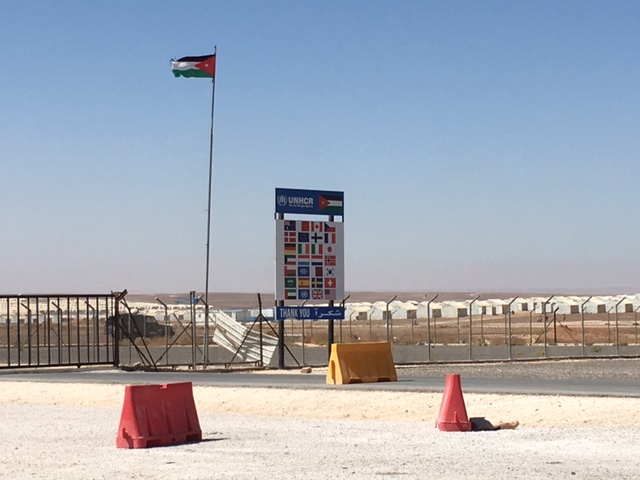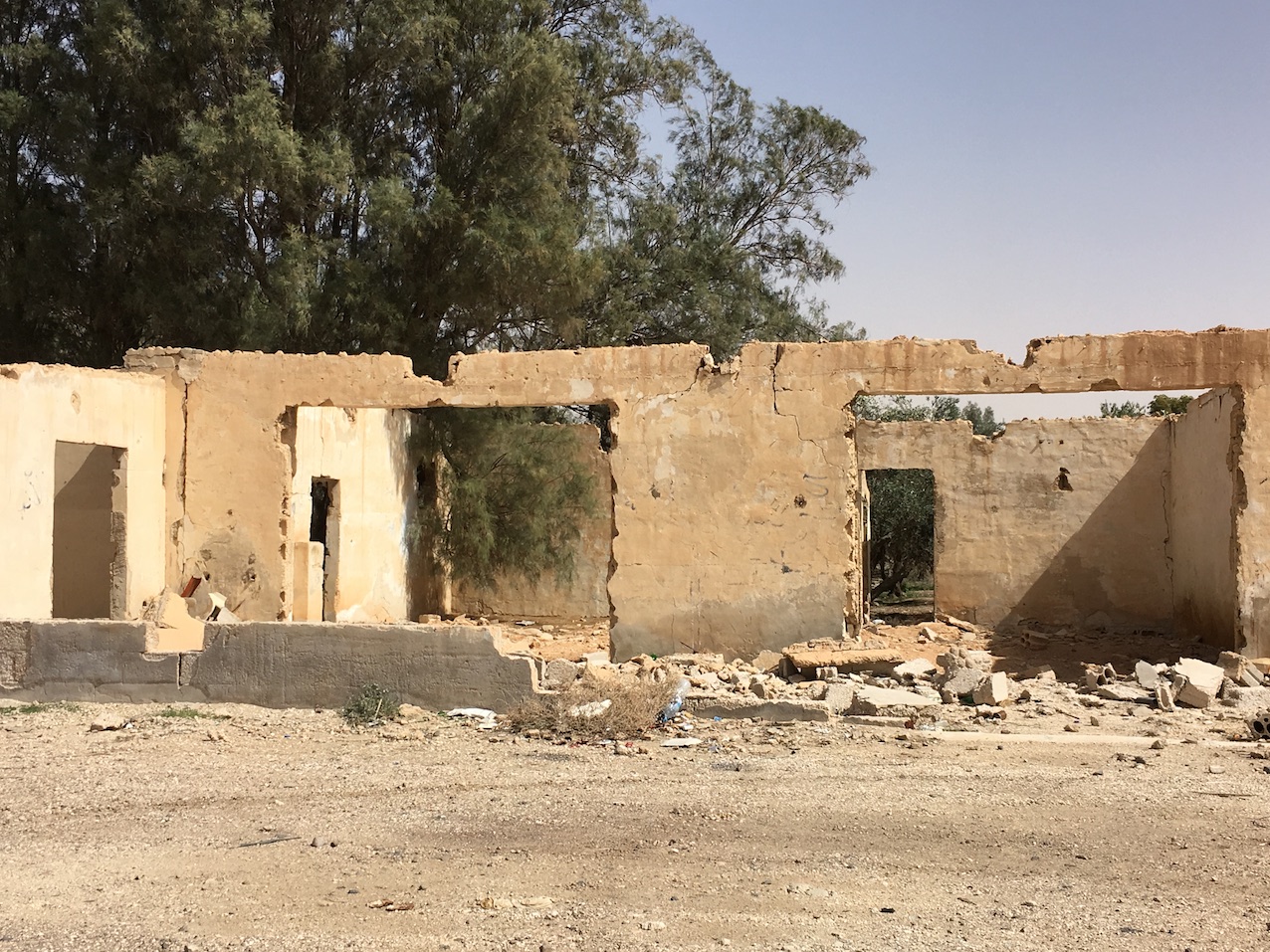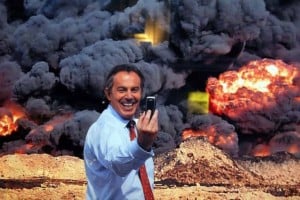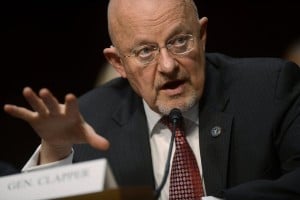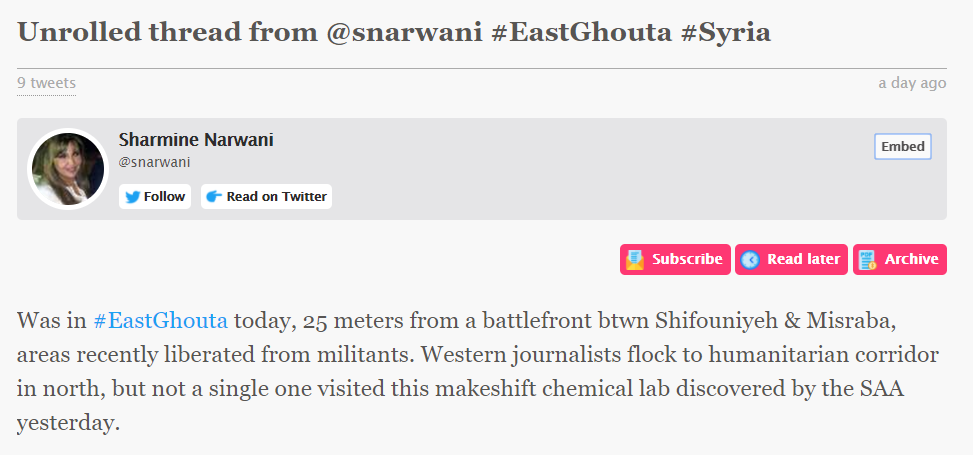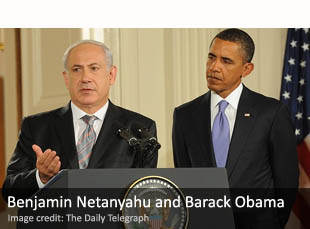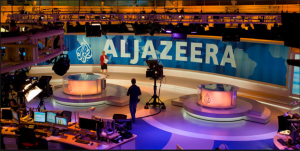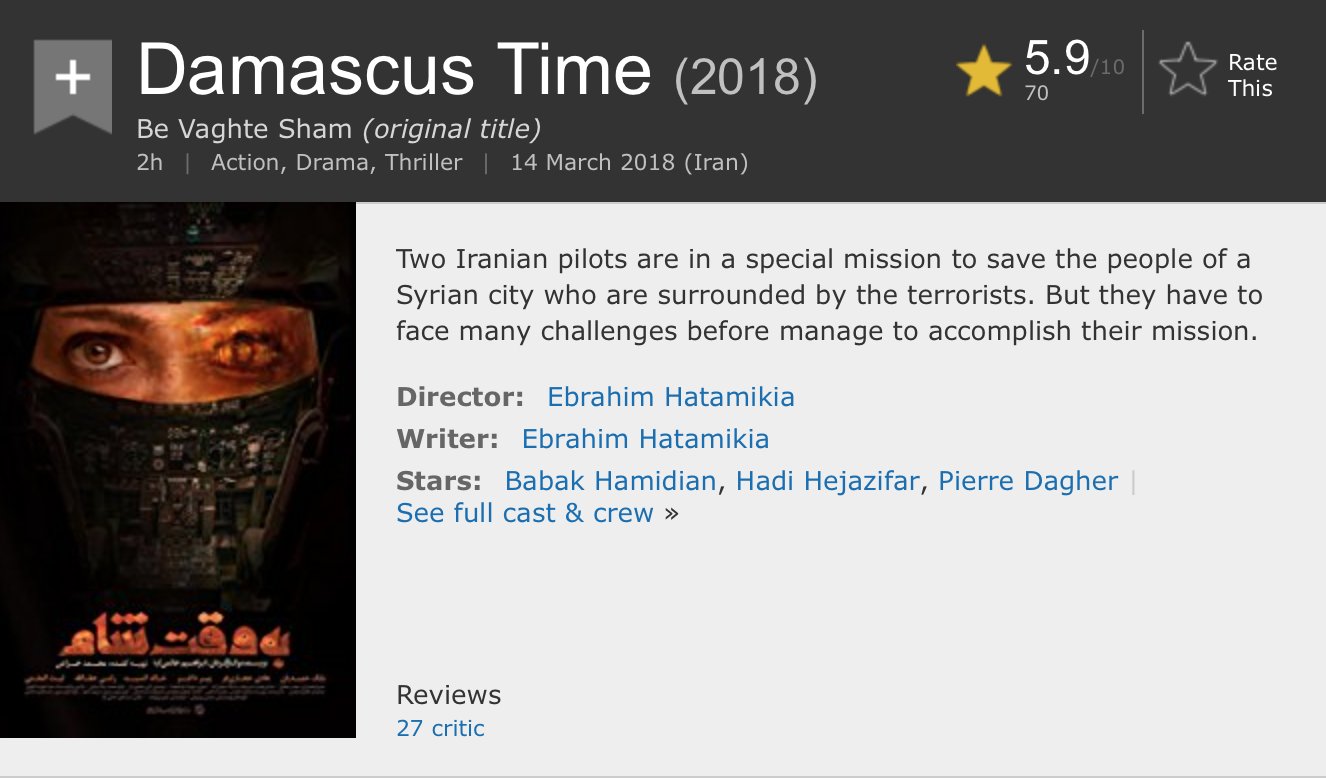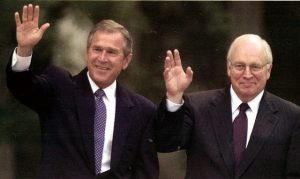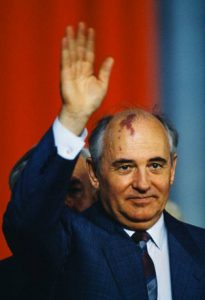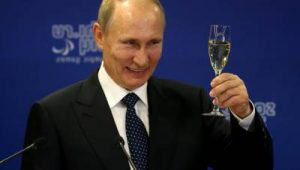“The old world is dying, and the new world struggles to be born, now is the time of monsters” (Antonio Gramsci)
Introduction: Between “apparent” and “real” History
Alvin Toffler, one of the world’s leading futurists, is often quoted, and with good reason, as saying that the illiterate of the 21st century will not be those who cannot read and write but those who cannot learn, unlearn and relearn.
In the same vein, in an interview given in 2014, Noam Chomsky was invited to comment on his book “Masters of Mankind”[2]—a collection of essays and lectures written between 1969 and 2013. Pointing out that the world has changed a great deal during that period, his interviewer asked him whether his understanding of the world had changed over time, and if so, what have been the most catalytic events in altering his perspective about politics. Chomsky—who was voted the world’s top public intellectual in 2005—offered the following answer
“My understanding of the world has changed over time and I’ve learned a lot more about the past, and ongoing events regularly add new critical materials. I can’t really identify single events or people. It’s cumulative, a constant process of rethinking in the light of new information and more consideration of what I didn’t properly understand. However, hierarchical and arbitrary power remains at the core of politics in our world and the source of all evils”.
Such an answer underlines the relevance in the truthful, cold and hard words once famously uttered by Winston Churchill “Truth is the first casualty of war (and) history is written by the victors”. Dan Brown, author of The Da Vinci Code[3], didn’t think otherwise when he wrote
“History is always written by the winners. When two cultures clash, the loser is obliterated, and the winner writes the history books—books which glorify their own cause and disparage the conquered foe”.
And as Napoleon once said,
“What is history, but a fable agreed upon?”
This is also what Malek Bennabi[4]—arguably one of the greatest Muslim thinkers of the 20th century—alluded to when he stated
“The real history of the modern world has yet to be written, because only its apparent history has been reported (and) it takes a certain sense of esotericism to actually penetrate the secrets and arcane of history (…) and to leave to the generation that comes sound and reliable information about the heredity of its own world”.[5]
Surely, one of the illustrations of this state of affairs is the history of Islam—a religion, a civilization today, more than ever before, finger-pointed by some as the source of many evils. For them, Islam has mutated into “Islamofascism”, a “new sworn foe” that a “coalition of the willing” from the “civilized world” is determined to confront by all available means in a looming “World War IV”.[6]
But what is, in fact, the truth of this matter through the ages? And what are the significance and the impact of the momentous events of 9/11 on that history? And, most importantly, what can one reasonably forecast with regard to the future of Islam and the Islamic world, particularly in view of what appears to be the twilight of the empire age and the dawn of a digital era, in the midst of a global moral vacuum and spiritual influx?
A brief history of a long struggle
What a large proportion of Muslims believe is a prophesied “Global war against Islam” is found in a popular hadith (a saying of Prophet Muhammad) dating back to over fourteen hundred years, according to which
“the Messenger of Allah said: The nations are about to flock against you [the Muslims] from every horizon, just as hungry people flock to a kettle. We said: O Messenger of Allah, will we be few on that day? He said: No, you will be many in number, but you will be scum, like the scum of a flash-flood, without any weight, since fear will be removed from the hearts of your enemies, and weakness (Wahn in Arabic) will be placed in your hearts. We said: O Messenger of Allah, what does the word wahn mean? He said: Love of this world and fear of death”.
Whether or not authentic, this hadith all but rings true with both the present chaotic situation prevailing in the entire Muslim world, and with the ongoing ominous antagonism between the West and Islam. As a result, the much-feared “clash of civilizations” seems closer at hand than ever. Indeed, as exemplified by the testimony of Graham E. Fuller
“Islam seems to lie behind a broad range of international disorders: suicide attacks, car bombings, military occupations, resistance struggles, riots, fatwas, jihads, guerrilla warfare, threatening videos, and 9/11 itself (…) Islam seems to offer an instant and uncomplicated analytical touchstone, enabling us to make sense of today’s convulsive world”.[7]
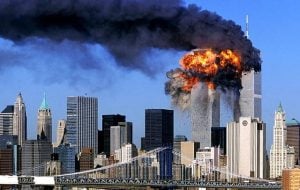
Precisely, in order to make sense of this awful “apparent reality” and put it into an appropriate historical and geopolitical perspective, it certainly helps to recall some of the forgotten or misremembered history that prepared for it, from its remote origins to its different contemporary manifestations dramatically brought into focus by 9/11.
To this end, any retrospective overview of the relations between the West and Islam would likely be incomplete if it did not refer to Arnold J. Toynbee’s monumental study of history, which has been acknowledged as one of the greatest achievements of modern scholarship.[8] It is worth noting that Toynbee published an interesting book[9] on the interactions between the West and Oriental civilizations, and that he worked for the British Foreign Office (within the Political Intelligence Department) during World War I.
Thus, addressing the issue of Islam’s place in History and its relations with the West, he wrote in 1948
“In the past, Islam and our Western society have acted and reacted upon one another several times in succession, in different situations and alternating roles. The first encounter between them occurred when the Western society was at its infancy and when Islam was the distinctive religion of the Arabs in their heroic age (…) Thereafter, when the Western civilization has surmounted the premature extinction and had entered upon a vigorous growth, while the would-be Islamic state was declining towards its fall, the tables were turned”.
The British historian further noted that in that life-and-death struggle, Islam, like Christendom before it, had triumphantly survived.
Yet this was not the last act in the play, for “the attempt made by the medieval West to exterminate Islam failed as signally as the Arab empire-builders’ attempt to capture the cradle of a nascent Western civilization has failed before; once more, a counter-attack was provoked by the unsuccessful offensive. This time, Islam was represented by the Ottoman descendants of the converted Central Asian nomads.” After the final failure of the Crusades, Western Christendom stood on the defensive against this Ottoman attack during the late medieval and early modern ages of Western history. The Westerners managed to bring the Ottoman offensive to a halt in the wake of the battle of Vienna that lasted from 1683 until 1699 when a peace treaty between the Sublime Porte and the Holy League was signed at Karlowitz. Thereafter, having encircled the Islamic world and cast their net about it, they proceeded to attack their old adversary in its native lair.
The concentric attack of the modern West upon the Islamic world, according to Toynbee, has inaugurated the present encounter between the two civilizations, which he saw as “part of a still larger and more ambitious movement, in which the Western civilization is aiming at nothing less than the incorporation of all mankind in a single great society, and the control of everything in the earth, air and sea which mankind can turn to account by means of modern Western technique”. Thus, the contemporary encounter between Islam and the West “is not only more active and intimate than any phase of their contact in the past, it is also distinctive in being an incident in the attempt by the Western man to ‘westernize’ the world—an enterprise which will possibly rank as the most momentous, and almost certainly as the most interesting feature in history, even for a generation that has lived through two world wars.”
Toynbee drew the conclusion that Islam is once more facing the West its back to the wall; but this time the odds are more heavily against it than they were “even at the most critical moments of the Crusades, for the modern West is superior to it not only in arms, but also in technique of economic life, on which military science ultimately depends, and above all in spiritual culture—the inward force which alone creates and sustains the outward manifestations of what is called civilization”.[10]
From Deus to Prometheus

Has this perception evolved over time in the West? And who, better that Bernard Lewis (image on the left), a leading Orientalist and Professor Emeritus at Princeton, could address that story? In the academic world, he is considered as the most distinguished living expert on the Middle East, and he is indeed amongst the very few historians who have ended up as historical actors in their own right. In his memoir[11], he recounts his wartime service in London and Cairo as an intelligence officer for MI6, and how after World War II he was granted the privilege to be the first Western scholar to enter the Ottoman archives. He further explains how he coined the phrase “clash of civilizations” in the 1950’s—which is historically untrue since this notion was first recorded in a book[12] written by Basil Mathews in 1926—and how September 11 catapulted him onto the world stage as a prominent mentor for a whole generation of American Neoconservatives. He can therefore hardly be viewed as a steadfast sympathizer of Islam.
And so, in another book precisely titled “Islam and the West”[13] published in 1993, Lewis recalls that in the great medieval French epic of the wars between Christians and Saracens (i.e. Arabs), the Chanson de Roland, the Christian poet endeavors to give his readers or, rather, listeners some idea of the Saracen religion. According to this vision, the Saracens worshiped a trinity consisting of three persons: Muhammad, the founder of their religion, and two others, both of them devils, Apollin and Tervagant”. He adds that “to us this seems comic, and we are amused by medieval man unable to conceive of religion or indeed of anything else except in his own image. Since Christendom worshiped its founder in association with two other entities, the Saracens also had to worship their founder, and he too had to be one of a trinity, with two demons co-opted to make up the number”. Lewis then rightfully draws a parallel saying that just as medieval Christian man could conceive of religion only in terms of a trinity, so his modern descendant can conceive of politics only in terms of a theology, or, as we say nowadays, ideology, of left-wing and right-wing forces and factions.
Bernard Lewis also pointed out to the recurring unwillingness on the part of many Westerners to recognize the nature of Islam, or even the fact that Islam, as an independent, different, and autonomous religion persists and recurs from medieval to modern times. One can see it, he explains, in the nomenclature adopted to designate the Muslims since “it was a long time before Christendom was even willing to give them a name with a religious meaning”. Indeed, for many centuries, both Eastern and Western Christendom called the followers of the Prophet “Saracens”, a world of uncertain etymology but “clearly of ethnic and not religious connotation (…) in the Iberian Peninsula, where the Muslims whom they met came from Morocco, they called them the Moors; in most of Europe, Muslims were called Turks, or, farther east, Tatars, another ethnic name loosely applied to the Islamized steppe peoples who for a while dominated Russia”. And until recently, Lewis further clarifies “even when Europe began to recognize that Islam was a religious and not an ethnic community, it expressed this realization in a sequence of false analogies, beginning with the names given to the religion of its followers, Muhammedanism and Muhammedans”.
The deeper history, as asserted by James Carroll[14], shows that this supposedly inherent conflict between Islam and the West “has its origins more in the ‘West’ than in the House of Islam. The image of Muslims as prone to violence by virtue of their religion was mainly constructed across centuries by Europeans seeking to bolster their own purposes”.
If truth be told, how else might we justify, for instance, the astonishing statement made by William Ewart Gladstone, four-time Prime Minister of Great Britain[15], in the House of Commons in the 19th century? Holding up a Qur’an, he cried out
“As long as a copy of this accursed book survives there can be no justice in the world”.[16]
And how else might we interpret the following opinions later expressed by Basil Mathews and Bernard Lewis, both of them agents of MI6 and true believers in the “Clash of Civilizations”—well before Samuel Huntington’s essay and later book which generated a global debate?[17]
Mathews writes in his book[18] that the
Qur’an “is a fixed system of theocracy, conceived in a tribal desert chaos. In the modern world it defies every tendency of modern, democratic, responsible, secular government. This is why Turkey has thrown over the Koran as a rule of the state. And if it does not rule the state, it rules nothing; for the religious attitude and social regulations of Islam are two sides of the one coin. They cannot be separated and remain Islam. Mohammedan Islam is the negation of progress erected into a divinely ordained system. We are tied by Islam to a reverence for Mohammed himself. Our minds, however, are appalled at the murders, the unnatural marriages, the cruelty, the brigandage and the sensuality. As a seventh century Arab the Prophet was wonderful; as a twentieth century hero and leader—not to say saint—he is impossible”.[19]
Lewis’s opinion on Islam is no different. Thus, in an attempt to explain “why so many Muslims deeply resent the West, and why their bitterness will not easily be mollified” he says in a supercilious Atlantic Monthly article[20] of September 1990,
“It should by now be clear that we are facing a mood and a movement far transcending the level of issues and policies and the governments that pursue them. This is no less than a clash of civilizations—the perhaps irrational but surely historic reaction of an ancient rival against our Judeo-Christian heritage, our secular present, and the worldwide expansion of both. It is crucially important that we on our side should not be provoked into an equally historic but also equally irrational reaction against that rival”.
Aladdin, the travel ban and the hate factory
It is a fact that Americans are among the most educated people in the world. Yet, it is also a fact that they are among the least educated about the world in general and the Arab and Muslim world in particular. They themselves admit the truthfulness of this flaw and many among them would wish to see it corrected.

This “knowledge gap” about the region was the subject of a wide-ranging poll of the American public entitled “The Arab Image in the US”, conducted by Arab News/YouGov between 17-21 March 2017.
Respondents answered 24 close-ended questions mainly pertaining to news-related behaviors, knowledge and interest in visiting the Arab and Muslim world, the rise of Islamophobia, opinions on Arabs who have migrated to the United States, and the perceived role of media portraying the real image of this part of the world.
Among other results of this survey, 81% of respondents couldn’t identify the Arab region on a map; over three-quarters said they would not consider travelling there because it is too dangerous; 65% admitted to knowing little about the region, with 30% having no interest in understanding it further. But, the most staggering finding was that more than a fifth of those surveyed said the “Sultanate of Agrabah”—the fictional city from Disney’s motion “Aladdin”—is a real part of the Arab world. An even higher proportion (38%) said they would be happy with a “Travel ban” on citizens of Agrabah should they be proven a threat. A previous poll conducted by Public Policy Polling during the 2016 American presidential campaign found that 30% of Republican voters supported “bombing Agrabah”, though, thankfully, 57% of them said they were not sure!
David Pollock of the Washington Institute for Near East Policy (WINEP)—a polling expert who has studied attitudes in the region and US-Arab relations for a long time—agrees that it is a negative and grim picture and believes it is due to a combination of factors. For some people in the US “it is a general sense of isolationism” and “a trend where people are like this with all foreign countries and not only the Arabs,” he said. Others are “prejudiced” but most importantly, “there is a kind of tendency to associate the whole region with terrorism, refugees and civil war. The region does not have a positive image and a lot of it is based on ignorance and narrow-mindedness.”
The shocking findings of this poll would’ve probably gone unnoticed had they not been the reflection of the true measure of the lack of knowledge, if not ignorance, driving both the American longstanding and often unwise policies of the successive administrations and people’s perceptions toward this tormented region. It is a feature that is all the more incomprehensible today as this region has become the main, if not the sole graveyard for thousands of young American and other Western soldiers sent into the fray to foreign lands under the guise of a foolish “war on terror” turned into a “war for terror”.
Prior to these and other numerous similar surveys and studies, American Professor of Mass Communications and award-winning film authority, Jack G. Shaheen, had dissected this topic. He did so in a ground-breaking book[21]published in January 2001, and later in a film[22] produced by Media Education Foundation, both with the same title “Reel Bad Arabs: How Hollywood Vilifies a People”.
In this meticulously researched study of one thousand films—dating from cinema’s earliest days in 1896 to contemporary Hollywood blockbusters featuring machine-gun wielding and bomb-blowing “evil” Arabs—Shaheen documented the tendency to portray Arabs and Muslims as “Public Enemy number 1”, who are “brutal, heartless, uncivilized Others bent on terrorizing civilized Westerners”. He found that out of those 1000 movies that have Arab and Muslim characters, 12 were positive depictions, 52 were neutral portrayals, and 936 were negative.
He was thus able to spotlight anti-Muslim and Arab stereotypes and to probe the intersections of popular culture and foreign policy. To this effect, he recounted how, historically, the strategic stereotyping of populations has been used to garner popular support for governmental policies, citing the career of Leni Riefenstahl and speeches by Lenin and Goebbels to illustrate film’s long history as a propaganda vehicle.
Shaheen explained that what he tried to do was
“to make visible what too many of us seem not to see: a dangerously consistent pattern of hateful Arab stereotypes, stereotypes that rob an entire people of their humanity (…) All aspects of our culture project the Arab as villain. That is a given. There is no deviation. We have taken a few structured images and repeated them over and over again (…) We inherited the Arab image primarily from Europeans. In the early days, maybe 150 years, 200 years ago, the British and the French who travelled to the Middle East, and those who didn’t travel to the Middle East, conjured up these images of the Arab as the Oriental other[23]. These fabricated images have then been taken by Americans”.
The Arab image in the U.S. began to deteriorate further immediately after World War II according to Shaheen. Three major events have impacted the change: the Palestinian-Israeli conflict, in which the United States has unequivocally supported Israel; the Arab oil embargo in the 1970’s, which angered Americans when gas prices went through the ceiling; and the Iranian Revolution, which increased Arab-American tensions when Iranian students took American diplomats hostage for more than a year. These three pivotal events “brought the Middle East into the living rooms of Americans and together helped shape the way movies stereotyped Arabs and the Arab world”.

Of all the Department of Defense films, Shaheen pointed out, the one that will stand the test of time as being the most racist is “Rules of Engagement”, which was written by former Secretary of the Navy James Webb. And “if you go and you see the new film called ‘The Kingdom’, Arab children again are portrayed as terrorists. So what’s happening now is the trend has taken us to a point where we look at all those people, namely Arabs and Muslims, as the enemy other, even children”.
Commenting on the film in an interview given to Democracy Now!, Jack Shaheen said that
“the humanity is not there. And if we cannot see the Arab humanity, what’s left? If we feel nothing, if we feel that Arabs are not like us or not like anyone else, then let’s kill them all. Then they deserve to die, right? Islamophobia now is a part of our psyche. Words such as ‘Arab’ and ‘Muslim’ are perceived as threatening words. And if the words are threatening, what about the images that we see in the cinema and on our television screens?”
He concluded by affirming that
“Politics and Hollywood’s images are linked. They reinforce one another: policy enforces mythical images; mythical images help enforce policy”.
Indeed, as Jack Valenti, president of the Motion Picture Association of America has said
“Washington and Hollywood spring from the same DNA”.
The priests of war and the “Islamic” terrorism
In his 1946 essay “Politics and the English Language”, George Orwell said that the political language is designed to make lies sound truthful and murder respectable, and to give an appearance of solidity to pure wind. This essay, as well as his other famous classic “1984”, published in 1949, are so profound as to be as much relevant today as they were in the aftermath of WWII.
Thus, in January 2017, the dystopian novel “1984” sold out on Amazon in the U.S. after it rose up to the top of the site’s bestsellers list. This ascent to the top began when Donald Trump’s adviser, Kellyanne Conway, coined the phrase “alternative facts”, after she was asked to explain the reason of Press Secretary Sean Spicer making a statement which was filled with inaccuracies. Journalists soon started to label Conway’s comment as “Orwellian”. One of them even concluded that “truth” is being redefined as whatever the U.S. government, NATO and their Western interests say is true, and disagreement with the West’s “group thinks”, no matter how fact-based the dissent is, becomes “fake news”.
So is the case concerning the story of “Islamic terrorism”[24], which led to an unprecedented level of Islamophobia in the Western world nowadays. Long before the 9-11 terrorist attacks, the American media has broadcast fears of “terrorism” with the clear message that Arabs and Muslims are, if not terrorists, at least extremists prone to violence and terrorism. And as the record shows, according to American political writer Michael Collins Piper[25]—unsurprisingly labelled as a conspiracy theorist by Jewish groups such as the Anti-Defamation League, Bnai B’rith, The Simon Wiesenthal Center, and the Middle East Media Research Institute—when the media outlets turn to “experts” for information about terrorism, more often than not they rely on sources with close ties to Israel and its American lobby.
Piper recalled that in 1989, Pantheon Books published a little-noticed volume[26] that provides a stark and revealing look at the development and growth of the “terrorism industry”. In this book, co-authors Professor Edward Herman and Gerry O’Sullivan of the University of Pennsylvania, provided a comprehensive overview of the way that powerful private special interest (both domestic and foreign) have worked together with government agencies in the United States and internationally to influence the way that the world looks upon the phenomenon of modern-day terrorism.
The public, therefore, learns of terrorist activity from the government and from overwhelmingly right-wing “experts” who confirm and reinforce state policy discourse, and the mass media, thus missing a balanced perspective, usually serves as gullible conduits for promoting stereotypes and biased information, if not outright propaganda. One has to recall what historian Harry Elmer Barnes once wrote about the methods used by
“the enemies of truth to suppress those historians who dare to lift the veil on reasons for world events (…) I charge that the articulate publicists of our country, by their semi-hysterical words in print and speech in which they champion extremes of diplomatic and military policy, are driving us rapidly into a war of unlimited and unattainable objectives which will bring on a gigantic catastrophe of ruin and revolution at home and abroad (…) By articulate publicists I mean those speakers and writers ranging from editors, novelists, magazine writers, columnists, dramatists, radio writers, lecturers, college professors, and educators, to senators and other elected officials, cabinet members, political leaders and presidents. When what they write and talk about becomes a united theme of agreement, action follows as certainly as butter follows the churning of sour cream”[27].
Numerous reports and investigations have indeed shed a light on the Islamophobia network of so-called experts, academics, media outlets, and donors who manufacture, produce, distribute, and mainstream fear, bigotry, hate and lies against Muslims and Islam in the United States such as: “Sharia is a threat to America”; “mosques are Trojan horses”; “radical Islam has infiltrated America, the government and mainstream Muslim organizations”; “there is no such thing as moderate Islam”; “practicing Muslims cannot be loyal Americans”, and so on and so forth. Two such reports[28] were released in 2011 and 2015, which revealed that close to 200 million dollars have been spent to support anti-Muslim activities.
One of the beneficiaries of these funds is Robert Spencer’s website “Jihad watch”, which received more than $500,000 in donations between 2001 and 2009. The ideas propagated by Spencer—long known for endeavoring to cast Islam as a diabolical threat that must be eradicated[29]—have inescapably resonated in America and elsewhere. A case in point is the story of Anders Breivik, the far-right terrorist who, on 22 July 2011, committed the worst mass killing his native peaceful Scandinavian country, Norway, has seen since WWII. In his 1,500-page manifesto entitled “2083 – A European Declaration of Independence”[30], Breivik referred to Spencer and his website 162 times. In the own words of the Washington Post
“the monster who admitted slaughtering at least 76 innocent victims in Norway was animated by the same blend of paranoia, xenophobia and alienation that fuels anti-Muslim sentiment in the United States. Yes, it could happen here”.[31]
Moreover, this powerful Islamophobia industry seems to have succeeded in gaining the upper hand over those trying to speak out to counter its politics of fear. Bethany Allen-Ebrahimian recounts this epic struggle in an article[32], which she concluded by stating that “Ideologues are seeking to marginalize Muslims by making their speech and their activism relating to their religion come at a very high price. They believe that Muslims are malevolent, duplicitous, and dangerous, and these Islamophobes will bend the truth to fit their claims. In the process, they are denying Islam the same functional rights that Christianity enjoys and silencing the very people best poised to reconcile Islam with modern American life. Which may be the very point”.
The “war against terrorism” has thus become part and parcel of the neoconservative long-range view and political agenda, in which Professor Bernard Lewis played a prominent role thanks also to the media which has consistently promoted his lectures and books.
Explaining Bernard Lewis’s scholar and political role in an excellent article[33] written in December 2002, Lamis Andoni says that Lewis’s work, especially his inflammatory book “What Went Wrong: Western impact and Middle Eastern Responses”––released in January 2002 shortly after the September 11 terrorist attacks but written shortly before—has been an essential source of what was practically a manifesto for advocates of U.S. military intervention towards “establishing democracy in the Middle East”. This appreciation was indeed confirmed by Paul Wolfowitz in March 2002. Speaking via video phone at a special ceremony held in Tel Aviv to honour the leading Orientalist, he said “Bernard Lewis brilliantly placed the relationships and the issues of the Middle East into their larger context with truly objective, original and always independent thought. Bernard has taught [us] how to understand the complex and important history of the Middle East and use it to guide us where we will go next to build a better world for generations”. It was also confirmed on 5 April 2003, by the New York Times which described the book as having been a major influence on Bush administration thinking.
By declaring that the peoples of the Middle East—meaning Arabs and Muslims—have failed to catch up with modernity and have fallen into “a downward spiral of hatred and rage”, Lewis has not only exonerated American imperial policies and provided a moral and historical justification for Washington’s “war on terror”, but has also emerged as chief ideologue for the re-colonization of the Arab world. Andoni drew the latter reflection from the conclusion of the book in which Lewis says
“If the peoples of the Middle East continue on their present path, the suicide bomber may become a metaphor for the whole region, and there will be no escape from a downward spiral of hate and spite, rage and self-pity, poverty and oppression, culminating sooner or later in yet another alien domination”.
All of the above has been aptly summed up in James Carroll’s aforementioned article which he concluded by stating that this inherited European habit of politicized paranoia is masterfully continued by freaked-out leaders of post 9/11 America. They too, he adds, like prelates, crusaders, conquistadores, and colonizers have turned fear of Islam into a source of power, and this history teaches that such self-serving projection can indeed result in the creation of an enemy ready and willing to make the nightmare real…
It is against that essential backdrop that we will set the events of 9/11 and their impact on the contemporary relations between the West and Islam, in a forthcoming analysis.
*
This article was originally published on The Saker.
Notes
1. Algerian researcher in international relations, author of the book “L’Orient et l’Occident à l’heure d’un nouveau Sykes-Picot” (“The Orient and the Occident in time of a new Sykes-Picot”), Editions Alem El Afkar, Algiers, 2014: downloadable free of charge, by clicking on the following links:http://algerienetwork.com/blog/lorient-et-loccident-a-lheure-dun-nouveau-sykes-picot-par-amir-nour/(French)
http://algerienetwork.com/blog/العالم-العربي-على-موعد-مع-سايكس-بيكو-ج/ (Arabic)
2. Noam Chomsky, “Masters of Mankind: Essays and lectures, 1969-2013”, Haymarket books, Chicago, 2014.
3. Dan Brown, “The Da Vinci Code”, Doubleday, 2003.
4. Malek Bennabi (1905-1973) was an Algerian writer and philosopher who devoted most of his life to observe and analyze History to understand the general laws behind the rise and fall of civilizations. He is mostly known for having coined the concept of “colonizability” (the inner aptitude to be colonized) and even the notion of “mondialisme” (Globalism).
5. Translated from Arabic. In Malek Bennabi, “2ج وجهة العالم الإسلامي” (Vocation of Islam, Part 2), Dar Al-Fikr, Damascus, Syria, 2012.
6. Norman Podhoretz, “World War IV: The Long Struggle Against Islamofascism”, Doubleday, New York, 2007.
7. Graham E. Fuller, “A World Without Islam”, Foreign Policy, January 2008.
8. Arnold J. Toynbee was an English historian whose 12-volume study entitled “A Study of History” put forward a philosophy of History based on an analysis of the cyclical development and decline of civilizations that provoked much discussion. In his study, began in 1922 and completed in 1961, he examined the rise and fall of 26 civilizations in the course of human history, and concluded that they rose by responding successfully to challenges under the leadership of creative minorities composed of elite leaders. Civilizations declined when their leaders stopped responding creatively, and then sank owing to the sins of nationalism, militarism, and the tyranny of a despotic minority. Unlike Spengler in his “The Decline of the West”, Toynbee did not regard the death of civilizations as inevitable, for they may or may not continue to respond to successive challenges. And unlike Karl Marx, he saw History as shaped by spiritual, not economic forces (Source: Encyclopædia Britannicaonline, 2008).
9. Arnold J. Toynbee, “The Western Question in Greece and Turkey: A Study in the Contact of Civilizations”, Constable and Company Ltd., 1922.
10. Arnold J. Toynbee, “Islam, the West, and the Future”, in “Civilization on Trial”, Oxford University Press, 1948.
11. Bernard Lewis (with Buntzie Ellis Churchill), “Notes On A Century: Reflections of A Middle East Historian”, Penguin Books, New York, 2012.
12. Basil Mathews, “Young Islam On Treck: A Study in the Clash of Civilizations”, Friendship Press, New York, 1926. After service in the British Ministry of Information during WWI, he became the Literature Secretary of the Conference of British Missionary Societies and editor of Outward Bound. In 1924, he was called from London to Geneva, Switzerland, to be the Literature Secretary of the Boys’ Work Division of the World’s Alliance of Young Men’s Christian Associations.
13. Bernard Lewis, “Islam and the West”, Oxford University Press, 1993.
14. James Carroll, “The War Against Islam”, in The Boston Globe, June 7, 2005.
15. 1868-74, 1880-85, 1886, 1892-94.
16. Quoted in Paul G. Lauren, ed, “The China Hands’ Legacy: Ethics and Diplomacy”, Westview Press, 1987, page 136: A variant of this quote is found in Rafiq Zakaria, “Muhammad and the Quran”, Penguin Books, 1991, page 59: “So long as there is this book, there will be no peace in the world”.
17. Samuel Phillips Huntington, “The Clash of Civilizations and the Remaking of World Order”, Simon & Schuster, 1996.
18. “Young Islam On Treck: A Study in the Clash of Civilizations”, op cit., page 199.
19. This appreciation is totally at odds with such writings as astrophysicist Michael H. Heart’s book “The 100: A Ranking of the Most Influential Persons in History” (Hart Pub. Co, 1978), in which Prophet Muhammad is listed first. Asked why he made this choice, the author answered “My choice of Muhammad to lead the list of the world’s most influential persons may surprise some readers and may be questioned by others, but he was the only man in history who was supremely successful on both the religious and secular levels” (To read more on that subject see: http://www.iupui.edu/~msaiupui/thetop100.html?id=61 ). Or Karen Armstrong’s “Muhammad: A prophet For Our Time”, Harpers Collins, 2006, in which this renowned author demonstrates that Muhammad’s life—A pivot point in history—has genuine relevance to the global crises we face today.
20. In Bernard Lewis, “The Roots of Muslim Rage”, The Atlantic, September 1990 issue.
21. Olive Branch Press, 2001
22. Showed for the first time in 2007. Watch on: https://www.democracynow.org/2007/10/19/reel_bad_arabs_how_hollywood_vilifies
23. In his landmark book “Orientalism”, first published in 1978, Edward Said observed: “Taking the late eighteenth century as a very roughly defined starting point Orientalism can be discussed and analyzed as the corporate institution for dealing with the Orient—dealing with it by making statements about it, authorizing views of it, describing it, by teaching it, settling it, ruling over it: in short, Orientalism as a Western style for dominating, restructuring, and having authority over the Orient… My contention is that without examining Orientalism as a discourse one cannot possibly understand the enormously systematic discipline by which European culture was able to manage—and even produce—the Orient politically, sociologically, militarily, ideologically, scientifically, and imaginatively during the post-Enlightenment period. Moreover, so authoritative a position did Orientalism have that I believe no one writing, thinking, or acting on the Orient could do so without taking account of the limitations on thought and action imposed by Orientalism. In brief, because of Orientalism the Orient was not (and is not) a free subject of thought or action… European culture gained in strength and identity by setting itself off against the Orient as a sort of surrogate and even underground self”.
24. See my analysis titled “The Western Roots of ‘Middle Eastern terrorism”http://thesaker.is/the-western-roots-of-middle-eastern-terrorism/#post-28423-footnote-ref-17
25. See his book “The High Priests of War”, American Free Press, Washington, D.C., 2004. For a free download: http://users.skynet.be/boekanier/High_Priests_of_War.pdf
26. “Terrorism Industry: The Experts and Institutes That Shape Our View of Terror”.
27. Harry Elmer Barnes (editor), “Perpetual War for Perpetual Peace: A Critical Examination of the Foreign Policy of Franklin Delano Roosevelt and Its Aftermath”, Caldwell, Idaho, Caxton Printers, Ltd., 1953.
28. See Center for American Progress report “Fear Inc.: the Roots of Islamophobia Network in America”, 2011; and CAIR’s report “Legislating Fear: Islamophobia and its Impact in the United States”, 2015.
29. Robert Spencer is the author of such hateful books as “Stealth Jihad: How Radical Islam Is Subverting America without Guns or Bombs” “Religion of Peace?: Why Christianity Is and Islam Isn’t” and “The Truth about Muhammad: Founder of the World’s Most Intolerant Religion”.
30. To read the manifesto : https://publicintelligence.net/anders-behring-breiviks-complete-manifesto-2083-a-european-declaration-of-independence/
31. Eugene Robinson, “Anders Behring Breivik and the influence industry hate”, The Washington Post, July 25, 2011 https://www.washingtonpost.com/opinions/anders-behring-breivik-and-the-influence-industry-of-rage/2011/07/25/gIQASd2WZI_story.html?utm_term=.8c0880c06bf3
32. Read “The Making of Islamophobia Inc.”, Foreign Policy, March 16, 2017:https://www.google.dz/amp/foreignpolicy.com/2017/03/16/the-making-of-islamophobia-inc/amp/
33. Lamis Andoni, “Bernard Lewis: In the Service of Empire”, The Electronic Intifada, 16 December, 2016.


